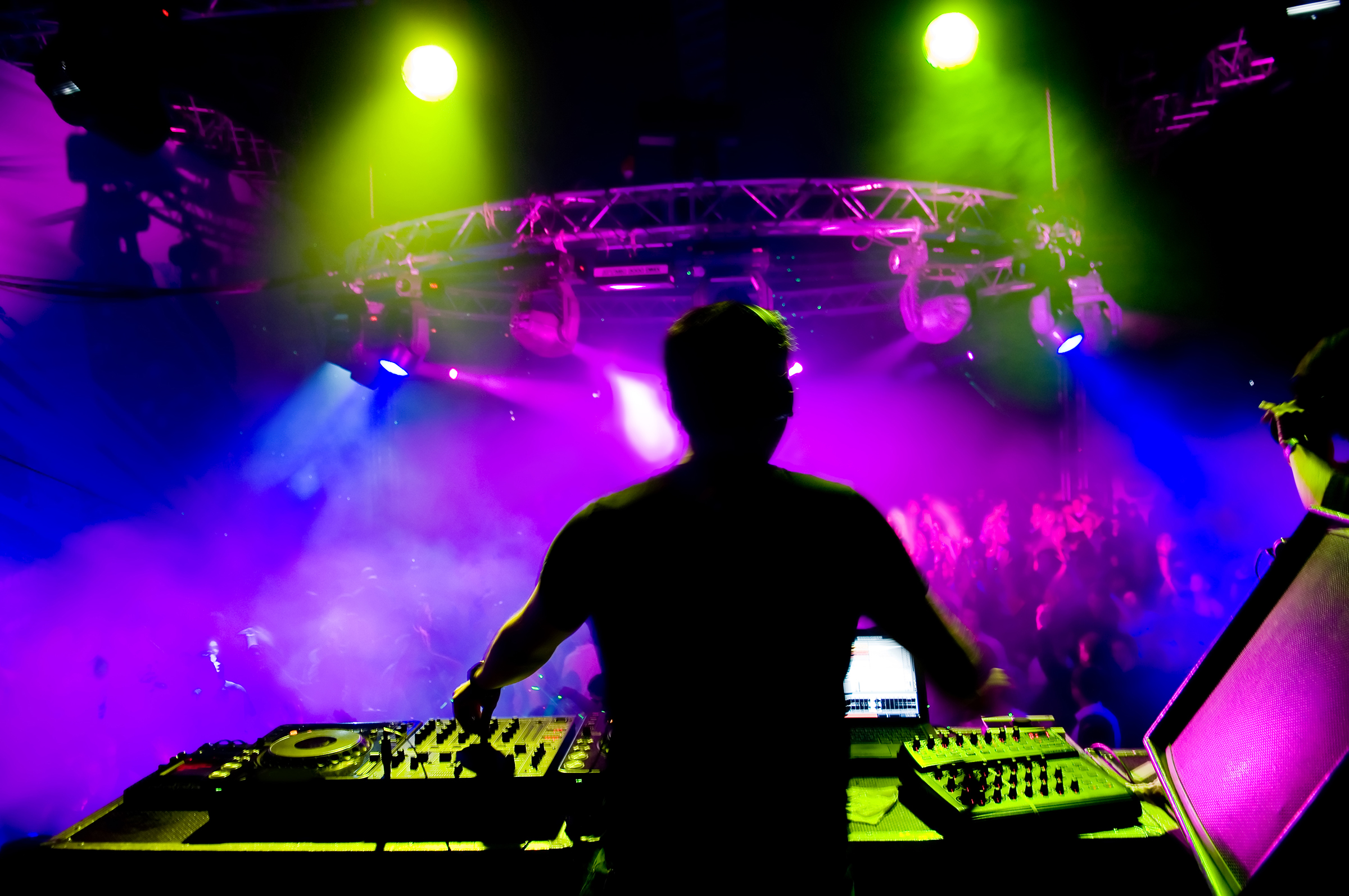Exploring The World Of DJ Mustard: A Look At His Impact And Sound
Have you ever found yourself nodding along to a beat that just makes you want to move, something with a distinct bounce and a West Coast feel? Well, you know, that sound, which really took over the music scene, especially in the early 2010s, it's often linked to a producer known as dj mustard. His particular style, often called the "ratchet sound," truly became a big deal, and you could hear it in so many songs by different artists. It was, in a way, a fresh wave that swept through the mainstream, changing how a lot of popular music sounded for a while there.
This producer, dj mustard, has a unique way of making music, and it’s been the subject of much talk among music fans and critics. From his early days shaping a whole sound to his efforts in trying to get big names, like Kendrick Lamar, to record on his beats, his career has had many interesting turns. It’s a story, you know, of influence, persistence, and how perceptions about artists can change over time.
We're going to take a closer look at what makes dj mustard’s work stand out, the impact he's had on music, and what people are saying about his presence in the industry today. You'll find out, perhaps, about his musical journey, the kind of experiences people have had seeing him perform, and some of the discussions that have popped up about his style. It’s all, in some respects, part of understanding how music gets made and how artists find their place.
Table of Contents
- Who is DJ Mustard? A Look at His Life and Work
- The Signature Sound and Its Rise
- Working with Big Names: The Kendrick Lamar Story
- Is DJ Mustard Still a Force? Changing Views
- The DJ Mustard Live Experience
- Facing the Music: Criticism and Repetition
- What's Next for DJ Mustard?
- Frequently Asked Questions About DJ Mustard
Who is DJ Mustard? A Look at His Life and Work
Dijon McFarlane, better known as dj mustard, is a music producer and DJ from Los Angeles, California. He became widely known for a very distinct production style that, you know, really defined the West Coast sound of the early 2010s. His beats often have a stripped-down, club-friendly feel, using heavy bass and catchy synth melodies. He’s, apparently, been a big part of shaping the sound for many popular artists.
Personal Details and Bio Data
| Full Name | Dijon McFarlane |
| Known As | DJ Mustard |
| Origin | Los Angeles, California, USA |
| Primary Role | Music Producer, DJ |
| Associated Sound | West Coast Ratchet |
The Signature Sound and Its Rise
Just under ten years ago, a sound known as the West Coast ratchet really started to take hold, and it was, you know, dj mustard’s early production work from around 2010 that made it so famous. This particular sound, it pretty much took over the main stage in music and became a common thing with many artists. It had a certain bounce, a distinct feel that was, like, very recognizable and easy to dance to.
His beats often featured, you know, simple yet powerful drum patterns, often with a clap on the third beat, and those signature synth sounds. It was a fresh approach that felt, in a way, both new and deeply rooted in West Coast music history. A lot of people really gravitated towards it, and it became a blueprint for many songs that got a lot of radio play.
This style, you see, was very effective for making tracks that just hit hard in clubs and on the radio. It wasn't overly complicated, which, arguably, made it so appealing to a wide audience. It was, basically, about creating a strong, infectious groove that people could easily connect with and enjoy.
Working with Big Names: The Kendrick Lamar Story
One interesting part of dj mustard’s journey involves his efforts to work with some of the biggest names in music. For example, he has, you know, been trying to get Kendrick Lamar to do a song using one of his beats for a really long time. This shows, perhaps, a level of persistence that many producers can only dream of.
He has, in fact, sent Kendrick Lamar about 60 beats. He doesn't just send them one by one; he sends them, you know, in groups, typically in bundles of five or so. This approach, you know, of sending many options, speaks to his dedication and his strong desire to make that specific collaboration happen. It's, basically, a continuous effort to find that perfect match between his sound and Kendrick's unique artistry.
The fact that dj mustard keeps sending these beats, even after a long time, highlights his commitment to his craft and his vision for potential projects. It’s, you know, a clear sign that he believes his production could really add something special to Kendrick Lamar's music, and he’s not giving up on that idea.
Is DJ Mustard Still a Force? Changing Views
The music world, you know, is always changing, and perceptions about artists can shift over time. There's been talk, for instance, that dj mustard hasn't been as "hot" in Los Angeles for a while now. Some people feel that the Tyga and YG records that still get radio play aren't, you know, truly showing what's popular on the West Coast these days.
It seems, apparently, that other producers, like Low the Great, Laudiano, Migo, and Cypress Moreno, are seen by some as being more in tune with what's currently buzzing on the West Coast. This suggests, in a way, that the soundscape is always moving, and new artists and producers are always coming up with fresh ideas. It’s, arguably, a natural part of the music cycle.
There's also this idea, you know, that dj mustard might be like this year's Mike Will. This kind of comparison suggests a big moment of success, where he's going to really shine this summer and for the rest of the year. However, the prediction also goes that, you know, after that, he'll fade away, and by the next year, he'll be completely gone. This thought, you see, reflects a common pattern in the music business, where some producers have a huge impact for a period and then their sound becomes less dominant.
The DJ Mustard Live Experience
Seeing a producer like dj mustard perform live can be a really fun experience. Someone, for example, saw him on a whim at Hard Summer back in 2014 and described it as one of the most enjoyable DJ sets they had seen. This kind of feedback, you know, really speaks to his ability to connect with a crowd in person.
It’s true, apparently, that his sets often feature just clips of hits. You know, like, really short snippets of popular songs. But, in a way, that's exactly what people sometimes want when they're at a festival or a big show. It keeps the energy high, and it allows him to play a lot of different popular tracks in a short amount of time. It's, basically, about delivering a high-impact, crowd-pleasing performance.
This style of DJing, where you play just the most recognizable parts of songs, can be incredibly effective for keeping a large audience engaged. It’s, you know, a very direct way to get people moving and singing along, creating a really good vibe. For many, it's just what you need for a fun time, and he seems to have that down.
Facing the Music: Criticism and Repetition
Like any artist who makes a big impact, dj mustard has faced his share of criticism. Todd, for instance, has been a very vocal critic of dj mustard in the past. He has, you know, put dj mustard’s songs on "worst lists" and, at least once, called his stuff repetitive and, you know, a bit boring. This kind of feedback is not uncommon for artists with a very distinctive, consistent sound.
The criticism also included, apparently, the idea that he was ripping off "Show Me Love." This kind of accusation, you see, suggests that some felt his work borrowed too heavily from existing material. It’s, basically, a common discussion point in music, where people debate originality versus influence.
The idea of his music being "repetitive" often comes up when a producer has a very strong, signature style. While it makes them recognizable, it can also lead to some listeners feeling that, you know, many of their songs sound similar. It’s a balance, in a way, between consistency and trying new things.
What's Next for DJ Mustard?
Considering the shifting views and the predictions about his future, it's interesting to think about what might be next for dj mustard. The comparison to Mike Will, where someone has a huge year and then, you know, might fade, brings up questions about longevity in music production. It's, arguably, a tough business where trends move very quickly.
Even if his sound isn't considered "hot" in Los Angeles by some right now, his past influence is undeniable. He helped define a whole era of West Coast hip-hop, and that, you know, is a significant achievement. His persistence in trying to work with artists like Kendrick Lamar also shows a continued drive to create and push his sound.
The music world is always looking for new sounds, but it also, you know, respects those who have truly shaped the landscape. Whether dj mustard continues to produce chart-topping hits or shifts his focus, his mark on the industry is, in some respects, already made. You can learn more about music production on our site, and perhaps you might want to check out this page about the history of West Coast hip-hop beats for more information.
Frequently Asked Questions About DJ Mustard
Why hasn't Kendrick Lamar worked with DJ Mustard?
Well, dj mustard has, you know, been trying to get Kendrick Lamar to do a song on one of his beats for a really long time. He's actually sent him about 60 beats, sending them in groups of five or so. So, it's not for a lack of trying on dj mustard's part; it seems, perhaps, that the right collaboration just hasn't happened yet.
Is DJ Mustard still relevant in today's music scene?
There are, you know, different views on this. Some people feel that dj mustard hasn't been as "hot" in Los Angeles for a long time, suggesting that his recent radio hits with artists like Tyga and YG don't fully show what's currently popular on the West Coast. Others, however, still see his influence and enjoy his live sets, which are, you know, known for being very fun.
What is DJ Mustard's future in music?
Some people have made predictions, you know, comparing him to Mike Will, suggesting he might have a very big year ahead, but then his popularity could fade away. The music world is, arguably, always changing, and producers' sounds can become less dominant over time. However, his past impact and continued efforts to collaborate suggest he will, in some way, remain a part of the music scene.

What is a DJ? (with pictures)

DJ Equipment for Beginners - Musicians Institute Hollywood

Dj mixing outdoor at beach party festival with crowd of people in